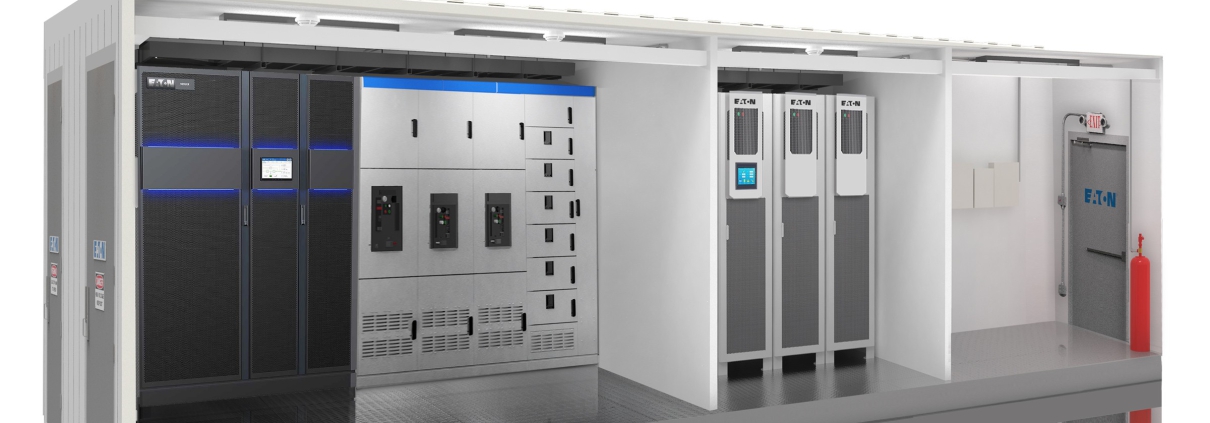Data Center Power Management: Ensuring Reliable and Efficient Power for Critical Infrastructure
Introduction: The Importance of Effective Power Management in Data Centers
In today’s digital era, data centers serve as the backbone of countless critical applications—from cloud computing and financial transactions to healthcare systems and e-commerce platforms. The continuous operation of these data centers depends heavily on robust power management to avoid costly downtime and service interruptions.
Data center power management encompasses all the strategies, technologies, and operational practices that ensure uninterrupted, efficient, and sustainable power supply. Given the complex and high-stakes environment, effective power management is a strategic imperative for data center operators, IT managers, and facility engineers alike.
The Strategic Role of UPS Systems in Data Center Power Management
At the heart of any data center’s power management strategy lies the Uninterruptible Power Supply (UPS) system. UPS units provide immediate backup power during outages and protect sensitive equipment from power surges, sags, and other electrical disturbances.
Modern UPS solutions are far more than simple battery backups; they represent a critical layer of resilience and operational intelligence:
- Continuous Power Supply: By seamlessly bridging power gaps, UPS systems prevent data loss and hardware damage during blackouts or brownouts.
- Power Conditioning: UPS units stabilize voltage and frequency, ensuring clean power reaches critical loads.
- Integration with Power Infrastructure: Advanced UPS systems interface with Power Distribution Units (PDUs) and Automatic Transfer Switches (ATS) to coordinate load balancing and failover.
- Remote Monitoring & Management: Intelligent UPS models provide real-time diagnostics, predictive maintenance alerts, and remote control capabilities—empowering operators to manage power health proactively.
Advancing Data Center Power Management Through Intelligent Integration
Data center power management is evolving rapidly with the integration of smart technologies and data analytics:
- Centralized Power Management Software collects granular data from UPS units, PDUs, and other power assets to provide unified visibility.
- Predictive Analytics enables early detection of power system anomalies, reducing unexpected failures.
- Automation and Remote Control streamline power operations, enabling rapid response to incidents and optimizing energy usage.
- Modular and Scalable UPS Designs allow data centers to grow without overhauling existing power infrastructure, reducing capital expenditures.
By adopting these innovations, data centers can improve uptime, reduce operational costs, and enhance energy efficiency.
Sustainability and Energy Efficiency: The Future of Data Center Power Management
Sustainability has become a priority in data center design and operation. UPS technology plays a pivotal role here by enabling:
- High-Efficiency Power Conversion: Modern UPS systems achieve energy conversion efficiencies exceeding 95%, minimizing waste heat and electricity consumption.
- Advanced Battery Technologies: The shift from traditional Valve-Regulated Lead Acid (VRLA) batteries to lithium-ion UPS batteries delivers longer life, higher energy density, and reduced environmental impact.
- Integration with Renewable Energy: UPS and energy storage systems help manage power fluctuations from solar or wind sources, ensuring clean, stable power supply.
For readers interested in deeper technical insights on designing robust and reliable power systems specifically tailored for data centers, we recommend exploring Designing Reliable Power Systems for Data Centers: The Critical Role of UPS Solutions. This article offers valuable guidance on UPS system architecture and best practices to ensure continuous power availability.
Looking ahead, the shift towards advanced battery technologies is reshaping backup power strategies. To understand why lithium UPS battery systems are gaining traction as the future of data center power resilience, check out Why Lithium UPS Battery Systems Are the Future of Data Center Backup Power. It highlights the benefits of lithium technology in improving efficiency, lifespan, and sustainability.
Challenges and Best Practices in Data Center Power Management
Despite technological advances, managing data center power remains a complex challenge due to:
- Increasing Power Density: As servers become more powerful and compact, power demand per rack grows, requiring more precise management.
- Aging Infrastructure: Many data centers operate legacy UPS and battery systems that require costly maintenance or replacement.
- Environmental Control: Temperature and humidity must be carefully regulated to avoid premature battery and equipment failure.
Best practices include regular lifecycle planning for UPS and battery replacements, adopting intelligent monitoring tools, and designing redundant power paths to minimize single points of failure.
Conclusion: Optimizing Power Management for Data Center Reliability and Efficiency
Effective data center power management is a multi-faceted discipline that combines hardware resilience, software intelligence, and sustainable practices. UPS systems stand as a cornerstone technology, ensuring continuous power supply and protecting vital digital infrastructure.
By embracing intelligent integration, adopting next-generation battery technologies, and following strategic operational practices, data center operators can safeguard uptime, reduce costs, and support environmental goals—positioning themselves for long-term success in a rapidly evolving digital landscape.
If you would like assistance with tailored UPS solutions or expert consultation on optimizing your data center’s power management, feel free to reach out.


